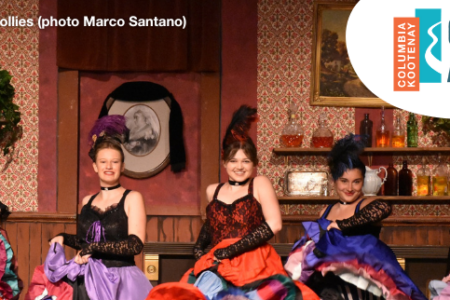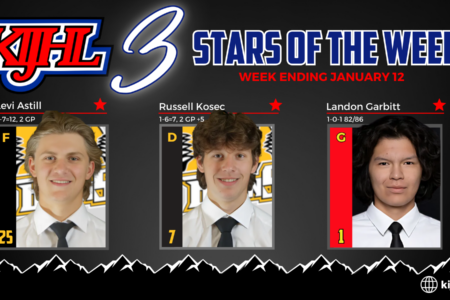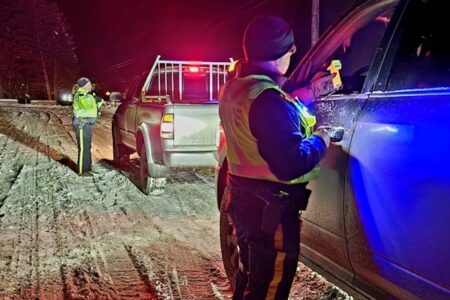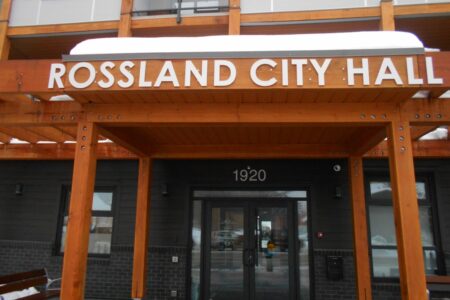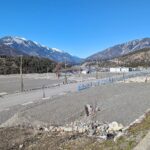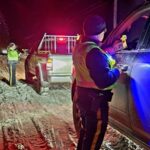COUNCIL MATTERS: Rossland City Council, January 13, 2025
Winter Carnival needs more volunteers! The Gold Fever Follies in 2025; the issue of ‘big oil’ and municipal costs of climate change; the value of bear-proof dumpsters; some categories of calls for RCMP service were up for Rossland last year.
PRESENT:
Council: Mayor Andy Morel and Councillors Stewart Spooner, Craig Humpherys, Eliza Boyce (remote), Jeff Weaver, Maya Provençal and Lisa Kwiatkowski.
Staff: Chief Administrative Office Bryan Teasdale, Deputy Corporate Officer Cynthia Añonuevo, Chief Financial Officer Mike Kennedy, City Planner Stacey Lightbourne, Executive Assistant Rachel Newton, Manager of Recreation & Events Kristi Calder, Manager of Operations and Infrastructure Scott Lamont and Deputy Operations Manager Josh Solman.
PUBLIC HEARING:
To hear residents’ thoughts on Zoning Bylaw # 2844, and Official Community Plan Amendment Bylaw # 2845, to enable future development of some private property at Redstone, while ensuring the best alignment of the Wagon Road and preventing interference with the sewer line, and retaining parkland. The developer will cover all costs of the land swap and road closure process, and will install 150 metres of new road, water, sewer and storm-water infrastructure.
Members of the public at the meeting did not comment; the Deputy Corporate Officer reported that two people had sent in written submissions, but she did not reveal whether the submissions had been in favour, opposed, or neutral.
The Public Hearing adjourned at 6:05 pm.
REGULAR COUNCIL MEETING
PUBLIC INPUT PERIOD:
Mayor Morel requested that people speaking to support the Gold Fever Follies do so only if they have new comments, and not repeat previously submitted information.
Jill Jenner (previously Spearn) stated that in her opinion the City should not pay lawyers to “fight Big Oil;” she has family in Alberta and “Alberta is our neighbour.”
Seven residents spoke in favour of ensuring that the Gold Fever Follies can continue, citing their value as a training ground and summer employment opportunity for performers, the economic value they bring to local businesses, the free shows they take to seniors’ facilities, and their educational and heritage value.
Some questioned the stated need to have the Miners Hall available as an emergency shelter, and noted that if there were an emergency during Follies’ show times, then of course the emergency need would take precedence anyway.
Lisa Henderson thanked the City for having some staff and Council members meet with Follies representatives earlier this month, and spoke about the Follies’ finances to explain that the amount shown as a balance in their chequing account is the bare minimum required to set the next season’s show in motion – “It’s all spent by July,” she stated.
Henderson also clarified that the Follies had never asked for “exclusive” occupancy of the Miners Hall during their season – just that their shows not be canceled to make room for another use.
DELEGATIONS:
Natural Control Alternatives Society:
Scott Leyland explained the history of the society’s work to reduce bear-human conflicts, and the success of the bear-proof dumpsters in Rossland, as well as the volunteer work that supports that success – and also the financial shortfalls, and a need for additional help to support the volunteer hours. The financial shortfall for the previous year was $4,000.
Leyland asked that City staff do once or twice daily checks of the dumpsters on weekdays to place trash left beside the bins, or easily removed recyclable items left in the bins, by the arena wall for volunteers to remove on their rounds. He said that volunteers could continue to cover weekends and holidays.
He also requested that the City commit to covering financial shortfalls for the service, up to an anticipated maximum of $7,000.
REFERRALS FROM PRIOR MEETINGS, PETITIONS AND DELEGATIONS:
1. Gold Fever Follies Miners Hall Use Agreement Review:
Background: The Gold Fever Follies have been producing summer shows at the Miners Hall for the past 38 years, except when they had to use the old Bank of Montreal building (which is no longer available) as an emergency venue during the Hall’s renovations. The planning and arrangements for the next summer’s show begin almost immediately after conclusion of the current year’s show. The Follies employ and train young people, both locally and from across the country, and boost local businesses. They have taken mini-shows to care facilities, and in the past, used to run summer “drama camps” for children, with Rossland Recreation.
The Follies have enjoyed a well-below market not-for-profit rate for the use of the Miners Hall, and City Staff are under increasing pressure to recover revenue from City facilities. Staff calculate that the City could recover a great deal more money from summer programming and rentals of the Hall if the Follies were not using it for so much of the time.
Council decided, during an in camera session in December, not to renew the City’s agreement with the Follies, which agreement protected the Follies from having scheduled shows canceled by the City to allow for other rentals during the times of the shows. However, the Follies were already well into preparation for the 2025 season, and had committed funding and entered into agreements for it, so the announcement that there was no agreement in place for the Miners Hall resulted in panic and cries for action.
After that decision and its fallout, the City agreed to a private meeting of some staff and Council members with Follies personnel in early January to exchange ideas and possible solutions. Since that meeting, the Follies have provided the City with complete information about the times during the summer of 2025 that the Follies need exclusive use of the performance hall, the Green Room and the Lily May Room, and the times when those spaces would be open for other rentals. The City suggested that the Follies’ rent for the 2025 season be increased from $3,000 to $6,000.
Spooner moved that Council approve an agreement for the Follies’ “non-exclusive” use of the Miners Hall for 2025, for $6000, with the details of times and spaces to be worked out between Staff and the Follies.
Spooner opined that the Follies have become accustomed to a level of subsidy from the City that is no longer reasonable; he thinks the City needs to “allocate resources among our many diverse interests and groups.”
Provençal said it’s important to have the next conversation with the Follies before they have had to enter into other agreements and commit funding for the next season.
Weaver stated that Council never wanted or intended to shut the Follies down, and he praised the 2024 production. He also said he had been upset by the “trial by Facebook” outcry, and the intemperate language used by a number of people, immediately following the news that the City had ended the Follies agreement for use of the Miners Hall. He said he is also put off by the idea that if a person wasn’t born and raised here, then their thoughts don’t matter as much. He spoke of the movie “Don’t Look Up,” and climate change, and referred to our infrastructure deficit – the huge amount of money that would be required to bring all old infrastructure up to standard – and said, “We don’t want to face a 30% increase in taxes, like Osoyoos did, and everyone’s heads exploded.” He wants to have a longer conversation with the Follies after this season; “How many days a week do the Follies need?”
Spooner’s motion CARRIED.
2. 2025 Community Grant Funding:
A motion to approve the recommendations from the Committee-of-the-Whole meeting held on December 9, 2024, to provide funding as follows, CARRIED unanimously.
Rossland Scouts $ 1,400
Family Action Network 3,365
Kootenay-Columbia Trails Society 39,391
Living Lakes Canada 2,583
Lower Columbia Affordable Housing Society 8,331
Rossland Council for Arts & Culture 11,167
Rossland Museum & Discovery Centre 55,041
Rossland Public Library 159,034
Rossland Tennis Society 3,197
Tourism Rossland 17,123
3. “Sue Big Oil” Request for Decision:
Council considered the request from “Sue Big Oil” that Rossland join in a proposed class-action lawsuit against the largest oil companies, to recover monetary compensation for the increased costs to municipalities caused by global heating (also known as “climate change”). For a detailed description of the proposed case, read this link. For the opinion of law professors on the proposal, click this link: Open letter from 28 Canadian law professors. For a deeper dive into the rationale supporting such a class-action lawsuit, set aside a bit more time to check the material at this link:
https://suebigoil.ca/wp-content/uploads/2023/09/Local-Government-Guide_updated.pdf
Provençal moved that: “The City of Rossland commit to join a proposed class action suit against selected oil companies, contingent upon other BC municipalities joining and raising a combined minimum of $500,000, and to set aside the equivalent of one dollar per resident for this purpose.
“And that any money awarded to the City as a result a settlement, or court order, arising from this lawsuit be used to mitigate any current or future damage caused in Rossland as a result of climate change.
“And that the pledge of one dollar per resident ($4,140) be paid from the Climate Action Fund, rather than taxpayer funds.”
Discussion:
Boyce commented that it’s “something of a shot in the dark, but also fairly inexpensive” to join the prospective class action suit.
Provençal commented that “oil & gas is my bread and butter — my husband works in the field.” But she also stated, “it’s true that oil & gas has externalized much of its costs” to taxpayers and the environment, and she thinks “We would be remiss in not joining this suit.”
Spooner said, “Our responsibility here is municipal governance, and this is outside our jurisdiction. I don’t think this is the role of this body.”
Kwiatkowski agreed with Spooner.
Humpherys agreed that, while the oil industry has acted irresponsibly over the years, he won’t support this motion – and read out verbatim a portion of the staff materials.
Weaver said he was “very torn on this one” but agreed that the City should “stay in its lane.”
Morel stated that the impacts of climate change will be felt “down to our level” and that our governments (provincial and federal) “lack the backbone to take the oil industry to task; if we don’t take the leadership, who will? If we don’t speak up now, when will we speak up? I truly believe it’s up to us, and that it’s very important.”
Provençal added, “This is not regulation of industry. If you think you’re being ‘apolitical’ by voting against this, you’re not. You’re being political just by being here.”
Kwiatkowski stated that she does not want to allocate fifteen or twenty thousand dollars to this. (Editor’s note: that was the staff estimate of the City’s cost to provide an estimate of the current and anticipated costs to the City of climate change.)
Boyce stated that spending funds to quantify current and anticipated costs to the City of climate change is not necessary to join the prospective class-action lawsuit, and speaking as an engineer, she thinks an attempt to do so would be “completely impractical.”
The motion FAILED, with Spooner, Humpherys, Kwiatkowski and Weaver voting against it, and Morel, Provençal and Boyce in favour.
STAFF REPORTS & UPDATES:
Requests for Council Decision :
a) City of Rossland Accessibility Plan:
A motion to adopt the Plan by Happy Cities and Meaningful Access Consulting in their December 9, 2024, delegation to Council, CARRIED unanimously.
This brings Rossland into compliance with the Accessible British Columbia Act.
b) Renewing the Regional Age Friendly Coordinator Agreement:
Rossland contracts the regional age-friendly services on behalf of Rossland, Warfield and Trail; each community pays one-third of the total cost. The current proposal increases the annual cost per community from $20,270 in 2024, to $20,937 for 2025. This increase is included in Rossland’s draft financial plan.
According to the materials provided, the funds pay for work that is “focused on communication (newsletters, mailing lists to seniors, etc.), education for seniors (typically using teas and lunches to bring in speakers and provide information and gain feedback on gaps in the region) and general advocacy.”
A motion to approve the proposed agreement CARRIED unanimously.
Cheque Register Report for November, 2024:
A motion to approve the report on City expenditures for December, 2024, CARRIED unanimously.
FOR INFORMATION ONLY:
2024 Corporate Work Plan – Q4 Progress Report
Council perused the report, and Spooner commented that he feels we will regret that we haven’t done more to mitigate our fire risk. Lightbourne noted that “everything we’re doing is based on a plan by a fire professional, and we spend more on it than most communities.” She also said that there is ongoing discussion about improving our FireSmart work, based on the experiences of other communities.
2024 Fourth-quarter Budget Update:
This report provides the reasons for any discrepancies between planned spending and what actually happened.
RCMP Fourth-quarter and Year-end Statistics:
For Rossland, most of the categories reported by the RCMP remained much the same from 2023 to 2024, with minor increases or decreases. The only categories with more than negligible differences were:
“Theft from Motor vehicle” – rose from two in 2023 to ten in 2024 – lock your vehicles!
“Mental Health related calls” – rose from 18 in 2023 to 34 in 2024.
“MVA violations” rose from 44 in 2023 to 48 in 2024.
Monthly Reports to Council for November:
Building Permits
Building Permit Inspections by Type
Step Code Energy Rebates
Public Works and Water Production
Eye on Water
Bylaw Compliance
REQUESTS ARISING FROM CORRESPONDENCE:
2025 JL Crowe Grad Class Fundraiser Request:
A motion to approve a one-time donation of $1,000 in 2025 to the JL Crowe graduating class in exchange for the collection and delivery of Christmas trees to the McKelvey Creek landfill CARRIED unanimously.
TransRockies Inc. Event Support Request 2025:
A motion to approve TransRockies Inc. use of the Centennial ball field on July 12 and 13, 2025, for the Singletrack 6 event for a fee of $150, CARRIED unanimously, as did a further motion to approve an exemption to the Good Neighbour Bylaw # 2631 for “noise created by amplified by amplified microphone from 6:15 a.m. to 7:05 a.m. on July 12 and 13, 2025.”
Calder noted that there is also a payment to help remediate the damage done to trails by the event, and further funding allocated to trail remediation from the RMI funding.
MEMBERS’ REPORTS:
Kwiatkowski noted that Winter Carnival is coming up soon, and the full bobsled race course is expected to be viable; and that more volunteers are needed.
Morel commented that he had a busy Christmas season, mostly responding to emails; he said the RDKB is going into budget deliberations soon – they need to do their budget before their member municipalities in order to inform them of what they (like Rossland) will have to collect from residents and pay to the RDKB.
THE MEETING RECESSED to an in camera session and your reporter wended her way homeward in the dark and frosty night, contemplating municipal priorities and what is “in our lane” as a municipality, and what is not, and how opinions about those things vary from person to person.



